
-
 publication: 27 June 2016
publication: 27 June 2016
Entrepreneurship & Innovation New Master Elective generates interesting research
By Dr. Sjoerd Gehrels, Academy of International Hospitality Research
In the new MA/MSc International Hospitality & Service  Management programme that started this academic year special attention to entrepreneurship and innovation was implemented. The new elective module Entrepreneurship & Innovation (ENIN) provides students with an extended introduction into this increasingly important field. The ENIN module is an accelerated research-based programme, designed to provide students with the opportunity to accrue the skills, frameworks, and learning experiences necessary to create business opportunities in service oriented organisations, or new companies. Applying entrepreneurial and innovative initiatives prepares students for careers in a variety in roles, such as entrepreneurship, corporate ventures, product and project management, start-up management, and other management roles. Special attention is given to the growing field of Social Innovation. The ENIN module is designed and offered by the UAS/AIHR professorship Innovation in Hospitality and constructed with the input of professionals from a range of sectors. A special feature of innovation is presented in the assessment package. Students can choose between writing a report or producing a YouTube video (with evidence portfolio) to present their real world example of entrepreneurship and innovation in the service industry. This year the module is delivered by lector Sjoerd Gehrels and visiting lecturers: Anne Kleefstra, social
Management programme that started this academic year special attention to entrepreneurship and innovation was implemented. The new elective module Entrepreneurship & Innovation (ENIN) provides students with an extended introduction into this increasingly important field. The ENIN module is an accelerated research-based programme, designed to provide students with the opportunity to accrue the skills, frameworks, and learning experiences necessary to create business opportunities in service oriented organisations, or new companies. Applying entrepreneurial and innovative initiatives prepares students for careers in a variety in roles, such as entrepreneurship, corporate ventures, product and project management, start-up management, and other management roles. Special attention is given to the growing field of Social Innovation. The ENIN module is designed and offered by the UAS/AIHR professorship Innovation in Hospitality and constructed with the input of professionals from a range of sectors. A special feature of innovation is presented in the assessment package. Students can choose between writing a report or producing a YouTube video (with evidence portfolio) to present their real world example of entrepreneurship and innovation in the service industry. This year the module is delivered by lector Sjoerd Gehrels and visiting lecturers: Anne Kleefstra, social 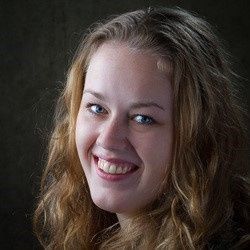 entrepreneur on societal change, sustainability and innovation - Practical researcher research group Employability, Zuyd Hogeschool, and associate member research group Innovation in Hospitality, Stenden HMS,
entrepreneur on societal change, sustainability and innovation - Practical researcher research group Employability, Zuyd Hogeschool, and associate member research group Innovation in Hospitality, Stenden HMS,
Dr. Peter Everts, innovation strategist and founder of the TSI 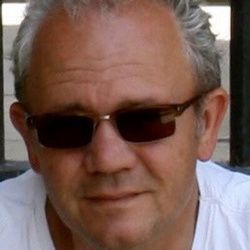 Foundation whose focus is on transformational social innovation, systemic change and new leadership. Peter coordinates large-scale innovation programmes, is keynote speaker and start-up facilitator. He works on re-establishing the importance of art and design (the creative minds ànd their products) in finding creative solutions to complex challenges. He is chairman of the board of the Creative Council Northern Netherlands. From the small hospitality business entrepreneurial community Michelin starred Restaurant Kaatje bij de Sluis co-owner Harald Hovenkamp talked about the innovations needed for his
Foundation whose focus is on transformational social innovation, systemic change and new leadership. Peter coordinates large-scale innovation programmes, is keynote speaker and start-up facilitator. He works on re-establishing the importance of art and design (the creative minds ànd their products) in finding creative solutions to complex challenges. He is chairman of the board of the Creative Council Northern Netherlands. From the small hospitality business entrepreneurial community Michelin starred Restaurant Kaatje bij de Sluis co-owner Harald Hovenkamp talked about the innovations needed for his 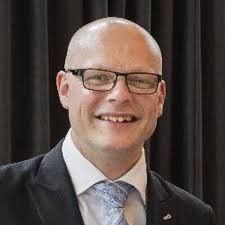 business to survive economic crises and what it meant to be a 2nd generation entrepreneur taking over a successful restaurant. During the work for Kaatje in Blokzijl he finished the part-time IHM programme at Stenden HMS. In 2004 he took over from the founders of the restaurant together with the chef at that moment, Peter Postma. In 2014 his first book ‘Modern Gastheerschap’ was published in which he provides a guide for starters in the hospitality business. Participating students in the module were enthusiastic about the range of inputs that they received in the ENIN module marked by a student’s statement ‘ … I thoroughly enjoyed the module and think it will be just as successful next year … ‘. Very interesting pieces of research were produced. Made
business to survive economic crises and what it meant to be a 2nd generation entrepreneur taking over a successful restaurant. During the work for Kaatje in Blokzijl he finished the part-time IHM programme at Stenden HMS. In 2004 he took over from the founders of the restaurant together with the chef at that moment, Peter Postma. In 2014 his first book ‘Modern Gastheerschap’ was published in which he provides a guide for starters in the hospitality business. Participating students in the module were enthusiastic about the range of inputs that they received in the ENIN module marked by a student’s statement ‘ … I thoroughly enjoyed the module and think it will be just as successful next year … ‘. Very interesting pieces of research were produced. Made 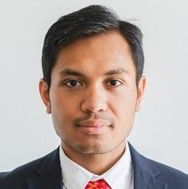 Mahendra Budhiastra (highest mark in the class) from Indonesia came up with the The Karma Karana, a notion on restructuring Bali hospitality and service industry by re-establishing the concept of Tri Hita Karana and Karmaphala. The business idea proposes to build a sustainable hospitality business product which can resolve the social, economy and environment problems that have occurred over the past decades in extremely popular destination Bali. The business idea combines the basic beliefs of the Balinese society (traditional) with the modern economy development. It applies the sustainable society diagram (Cavagnaro and Curiel, 2012) that gives credit to focus points as people, planet and the God as the owner of this earth besides making profit. Another very interesting entrepreneurial innovation was presented by Andy Heyes (UK)
Mahendra Budhiastra (highest mark in the class) from Indonesia came up with the The Karma Karana, a notion on restructuring Bali hospitality and service industry by re-establishing the concept of Tri Hita Karana and Karmaphala. The business idea proposes to build a sustainable hospitality business product which can resolve the social, economy and environment problems that have occurred over the past decades in extremely popular destination Bali. The business idea combines the basic beliefs of the Balinese society (traditional) with the modern economy development. It applies the sustainable society diagram (Cavagnaro and Curiel, 2012) that gives credit to focus points as people, planet and the God as the owner of this earth besides making profit. Another very interesting entrepreneurial innovation was presented by Andy Heyes (UK) in his Leeuwarden Wellness Sanctuary Supporting the Dutch Health System Through Natural Healing. This Leeuwarden Wellness Sanctuary is specifically designed to assist in the health and wellbeing of the people of Leeuwarden as well as the rest of the Dutch. The sanctuary’s main purpose is to provide its guests with adequate support systems which will greatly improve client’s health and wellness as well as assisting the Dutch Health System to counter its increasing expenses. Although there are already fitness facilities in Leeuwarden, Andy’s innovation goes much further in applying a holistic approach. Special feature would be the launching of the Leeuwarden Wellness Sanctuary in the Leeuwarden-Fryslan 2018 Cultural
in his Leeuwarden Wellness Sanctuary Supporting the Dutch Health System Through Natural Healing. This Leeuwarden Wellness Sanctuary is specifically designed to assist in the health and wellbeing of the people of Leeuwarden as well as the rest of the Dutch. The sanctuary’s main purpose is to provide its guests with adequate support systems which will greatly improve client’s health and wellness as well as assisting the Dutch Health System to counter its increasing expenses. Although there are already fitness facilities in Leeuwarden, Andy’s innovation goes much further in applying a holistic approach. Special feature would be the launching of the Leeuwarden Wellness Sanctuary in the Leeuwarden-Fryslan 2018 Cultural  Capital of Europe year. Da Xu from China presented the idea of an innovative hotel accommodation called Eco Bubble situated at the Diwang Hyatt Hotel and aims at changing the traditional principle of accommodation. Eco Bubble re-defines accommodation as a place for guests to experience an unique memorable stay. Sleeping under stars and on the sea, rather than just on a bed in an elegant private room. Besides, Eco Bubble also meets the aspect of asset light and sustainability. Future application of 4D printing technique can make Eco Bubble to be rather unique although bubble hotels have been operated. One of the students presenting her innovative idea through YouTube, Miao Liu (PRC), looked at housing in Leeuwarden for students
Capital of Europe year. Da Xu from China presented the idea of an innovative hotel accommodation called Eco Bubble situated at the Diwang Hyatt Hotel and aims at changing the traditional principle of accommodation. Eco Bubble re-defines accommodation as a place for guests to experience an unique memorable stay. Sleeping under stars and on the sea, rather than just on a bed in an elegant private room. Besides, Eco Bubble also meets the aspect of asset light and sustainability. Future application of 4D printing technique can make Eco Bubble to be rather unique although bubble hotels have been operated. One of the students presenting her innovative idea through YouTube, Miao Liu (PRC), looked at housing in Leeuwarden for students  and came up with innovation on that topic. The idea is outlined in https://www.youtube.com/watch?v=62Z9rGg3_j4. More innovating ideas were generated by the nine students who participated in this first elective version. Primary conclusion is to extend this module to all MA/MSc International Hospitality & Service Management students and make it core to the programme. Another conclusion about the ENIN module is that AIHR as facilitator can provide high quality real world research-based content to the students thereby increasing the value of professional master programmes.
and came up with innovation on that topic. The idea is outlined in https://www.youtube.com/watch?v=62Z9rGg3_j4. More innovating ideas were generated by the nine students who participated in this first elective version. Primary conclusion is to extend this module to all MA/MSc International Hospitality & Service Management students and make it core to the programme. Another conclusion about the ENIN module is that AIHR as facilitator can provide high quality real world research-based content to the students thereby increasing the value of professional master programmes.



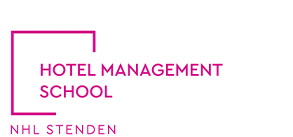
 Back to overview
Back to overview

